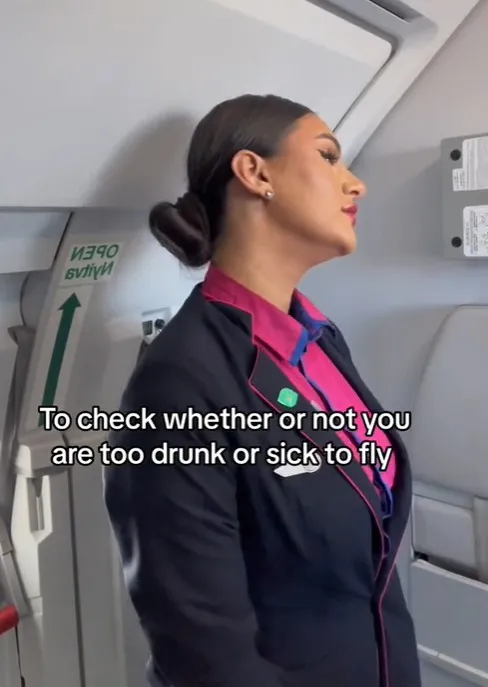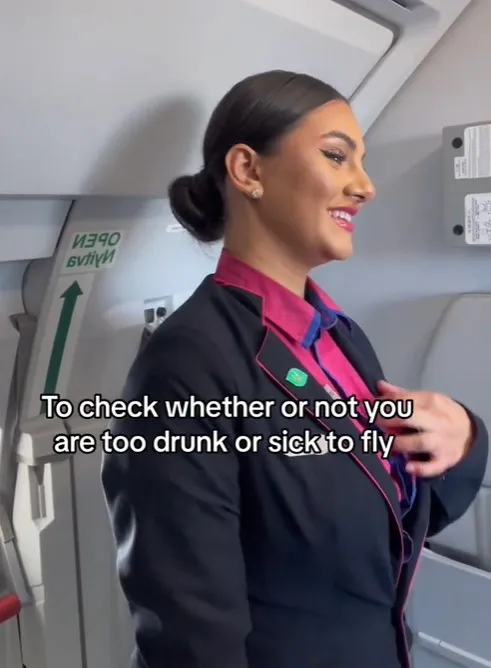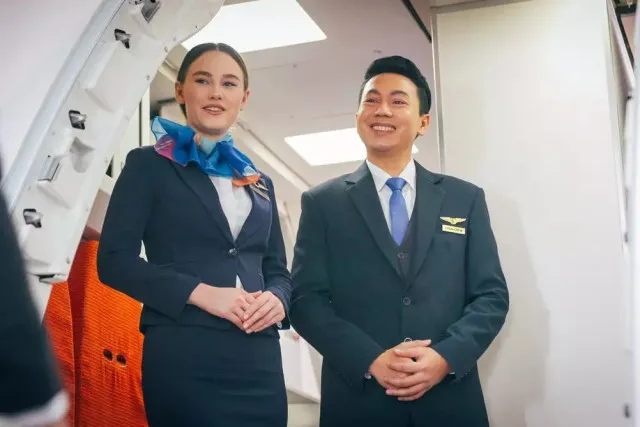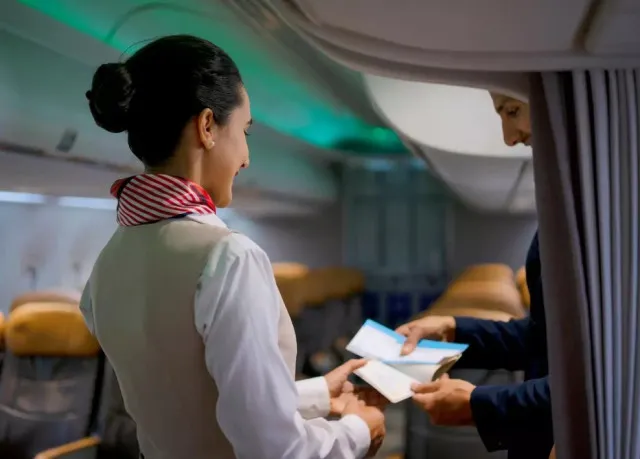When boarding a plane, your response to the greeting of the flight attendant is crucial. It helps them gauge your well-being and needs.
When you board a plane, one of the first things you’ll likely experience is a warm greeting from a flight attendant.
While this may seem like a simple courtesy, there is much more to it than just politeness.
Your response plays a crucial role in ensuring safety during the flight.

The role of the greeting
Flight attendants are trained to assess the condition of passengers through brief interactions.
This initial greeting serves as a subtle tool to gauge whether a traveler might be under the influence of alcohol.
Many people enjoy a drink or two at the airport before their flight, and flight attendants need to identify those who may be too intoxicated to fly safely.

Understanding passenger behavior
Passengers who have had too much to drink can create significant safety concerns.
There have been numerous anecdotes of travelers struggling to navigate the aircraft due to excessive alcohol consumption.
For example, one memorable incident involved a passenger who wobbled down the steps after drinking too much.
His unsteady walk caused laughter among fellow travelers.

By detecting signs of intoxication during their greetings, flight attendants aim to prevent such disruptive scenarios.
According to flight attendant Iona Iachim, checking a passenger’s readiness to fly is an essential part of the greeting.
This assessment helps maintain a safe environment in the confined space of an airplane.
Flight attendants are trained to observe signs of intoxication or illness, which could escalate into larger issues during the flight.

Identifying special needs
Besides assessing potential problems, the greeting also helps flight attendants identify passengers who could assist in an emergency.
By talking with passengers while boarding, flight attendants can spot who might stay calm in an emergency.
This helps them remember where these helpful people are seated, so they can get help quickly if needed.
Building rapport and Trust
The greeting helps flight attendants build trust with passengers.
By being friendly and attentive, they make you feel comfortable.

This trust is important if any problems come up during the flight.
When passengers feel respected, they are more likely to talk openly and follow safety rules.
Ensuring safety
Safety is a paramount concern for flight attendants, and your response can contribute to maintaining it.
Flight attendants use their interactions with passengers to gauge their awareness and attentiveness.
If a passenger seems distracted or disengaged, the crew can take measures to ensure that they are aware of safety procedures and emergency protocols